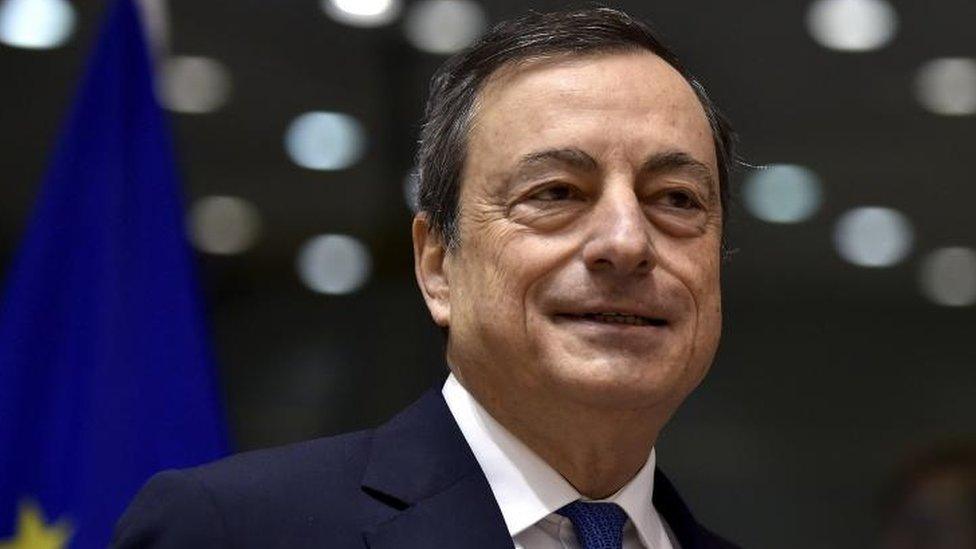Mario Draghi seeks to calm fears over European banks
- Published
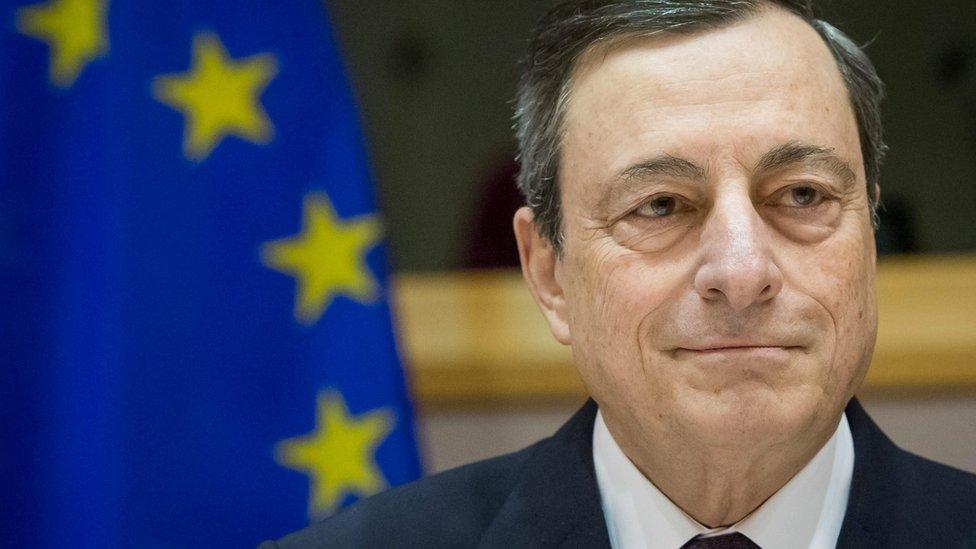
ECB president Mario Draghi said European banks were now more resilient than during the 2012 banking crisis
European Central Bank chief Mario Draghi has sought to calm fears about the health of European banks after a "sharp fall" in their share prices.
European banking stocks, external have lost almost a quarter of their value since the start of the year.
But Mr Draghi said banks were now better protected from a collapse than before the financial crisis.
Individual banks and the financial system as a whole are more resilient, he told European Parliament members.
His comments come as stocks including Deutsche Bank and Societe Generale fluctuated wildly last week.
"The sharp fall in bank equity prices reflected the sector's higher sensitivity to a weaker-than-expected economic outlook," Mr Draghi said.
Investors were also worried that banks would be hit by low commodity prices, tighter regulations and low interest rates, he said.
'Will not hesitate'
However, Mr Draghi said banks had better "capital buffers" than they did during the eurozone banking crisis four years ago.
"In the euro area, the situation in the banking sector now is very different from what it was in 2012," he said.
Speaking in the European Parliament, Mr Draghi also said the ECB was "ready to do its part" to strengthen the wider Eurozone economy: "We will not hesitate to act."
He hinted at further monetary stimulus next month as the eurozone battled weak investment, sluggish manufacturing growth, geopolitical risks and heightened uncertainty about the health of the global economy.
The euro fell nearly 1% against the US dollar to $1.1141 following Mr Draghi's comments.
€500 note in doubt
Asked about this week's crucial summit on the UK's EU renegotiation, the ECB boss said the ideal outcome would be to "anchor the UK in the European Union", adding: "Both have to draw benefits from this."
Meanwhile, the ECB is examining the possibility of abolishing the €500 note, Mr Draghi said, describing the note used by savers to hoard tens of billions of euros as an instrument also used by criminals.
He said savers would not be penalised and could use the €200 note instead to hold their cash.
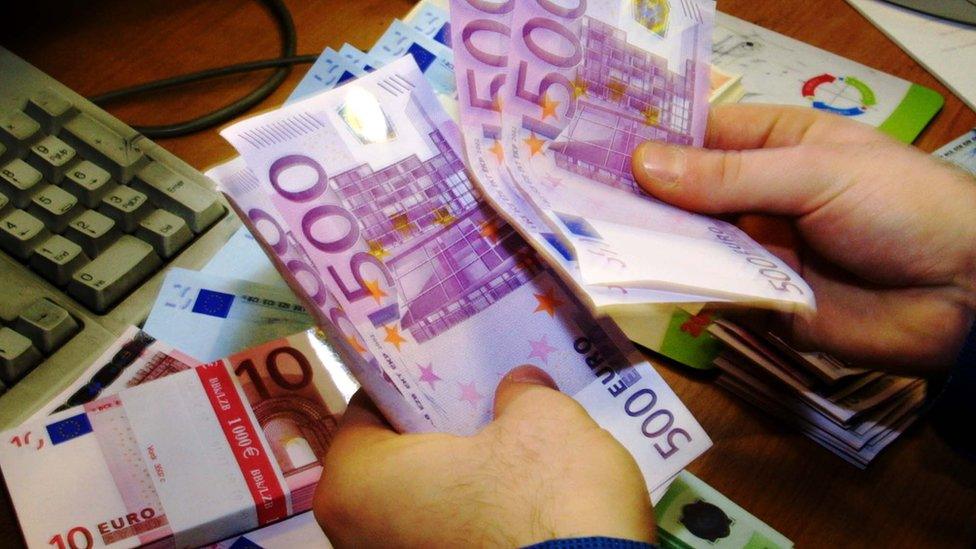
Mr Draghi told MEPs: "The €500 note is being viewed increasingly as an instrument for illegal activities. It has nothing to do with reducing cash."
Money exchanges in the UK have not been permitted to sell the €500 note since 2010.
The Serious Organised Crime Agency said at the the time that the note had become the currency of choice for criminals who wanted to hide their profits.
- Published15 February 2016

- Published15 February 2016
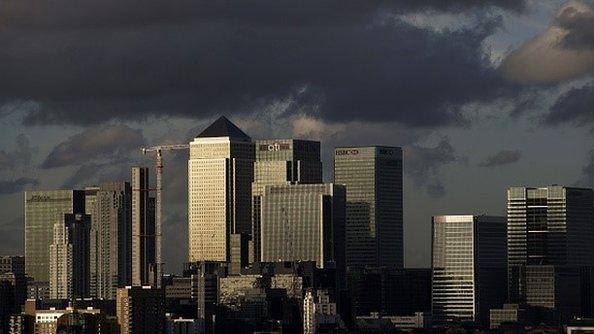
- Published10 February 2016
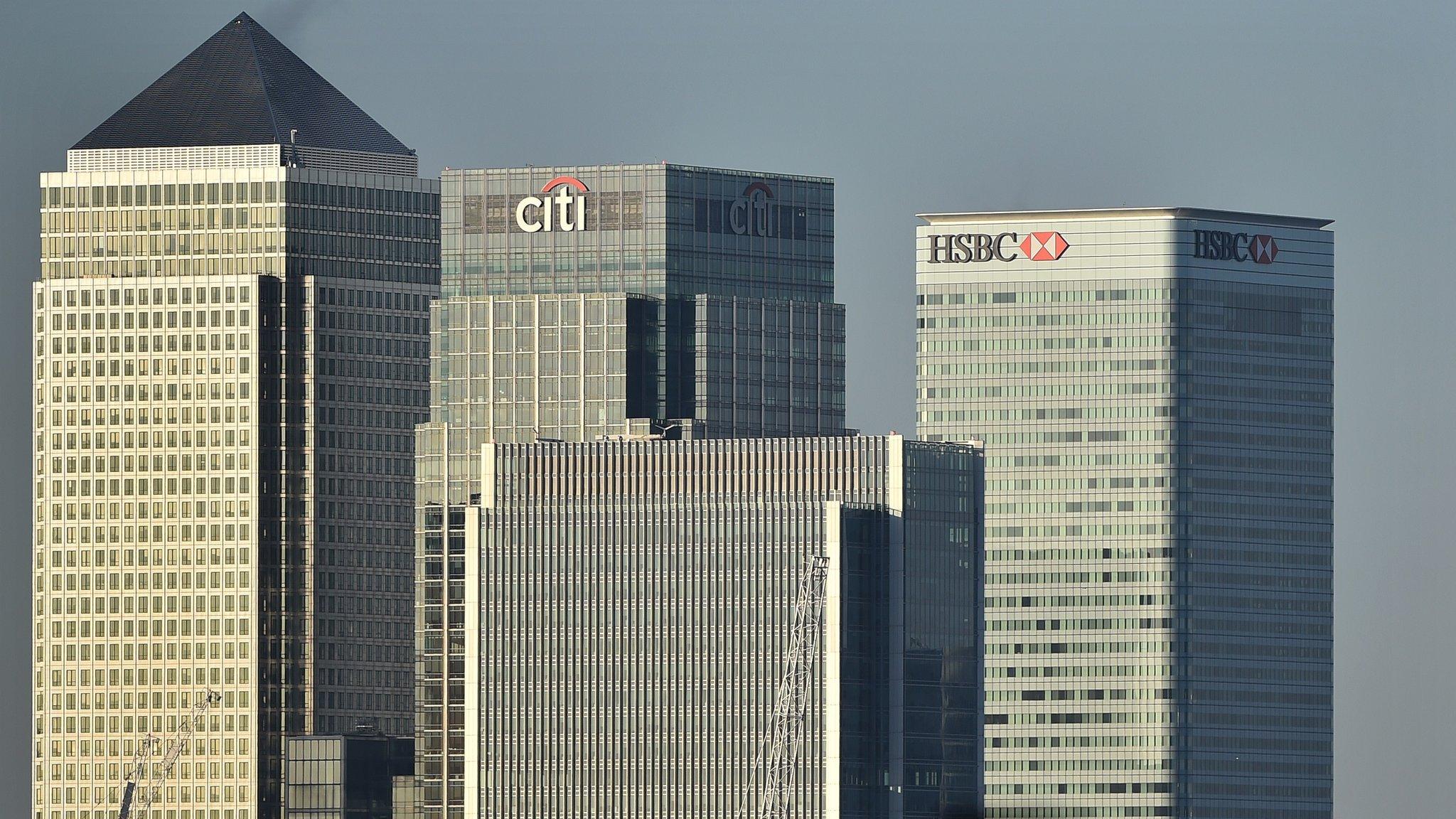
- Published21 January 2016
